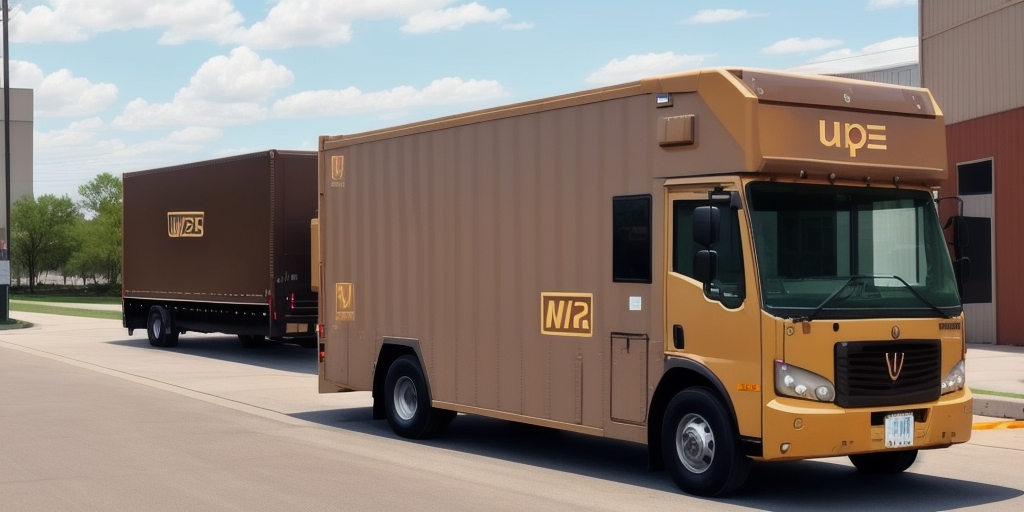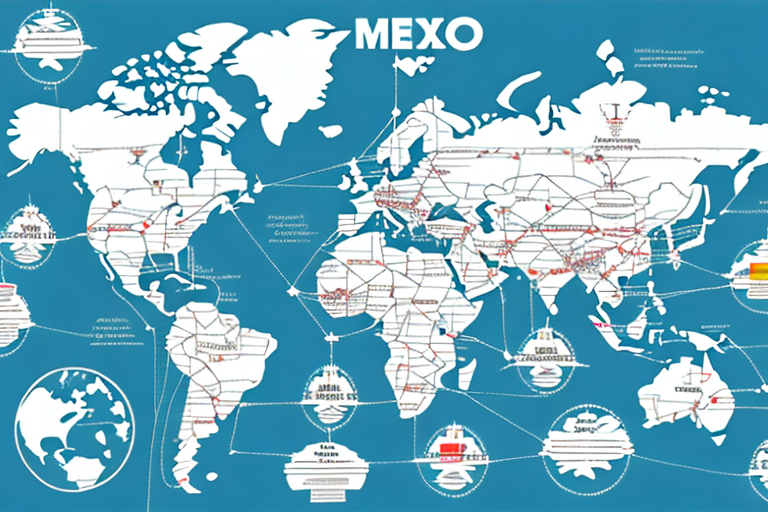Understanding Federal Express Shipping Costs
If you're a frequent user of Federal Express (FedEx) services, you know that shipping costs can add up quickly. Whether you're sending a package across the country or overseas, it's essential to understand how FedEx calculates its charges and what factors can affect the final cost. In this article, we'll break down the different types of charges associated with FedEx services and provide tips on how to reduce your shipping costs.
How FedEx Calculates Shipping Costs
FedEx determines its shipping costs based on several key factors:
- Package Weight and Dimensions: The weight and size of your package significantly impact the cost. Heavier and larger packages cost more to ship.
- Origin and Destination: The distance between the shipping origin and destination affects the price. International shipments typically incur higher fees due to customs duties and taxes.
- Delivery Speed: Faster delivery options, such as overnight or two-day shipping, cost more than standard ground shipping.
- Type of Service: Different services, such as FedEx Ground, FedEx Express, and FedEx Freight, have varying pricing structures.
- Additional Fees: These may include fuel surcharges, residential delivery fees, and special handling fees for hazardous or fragile items.
Accurate information about your package’s weight, dimensions, and destination is crucial for an accurate shipping cost estimate.
Types of Charges Associated with FedEx Services
Understanding the various charges can help you manage and anticipate your shipping costs:
- Base Rates: The foundational cost based on weight, dimensions, and distance.
- Fuel Surcharges: Adjusted based on current fuel prices, these can fluctuate regularly.
- Additional Handling Fees: Applied for packages requiring special handling, such as hazardous materials.
- Oversize Package Fees: Charged for packages exceeding standard size or weight limits.
- Customs Duties and Taxes: Applicable to international shipments, these vary by destination country.
Each of these charges can affect the final cost of shipping, so it's important to factor them into your budget.
Factors Influencing FedEx Shipping Costs
Several elements can influence the total cost of your FedEx shipment:
- Seasonality: During peak seasons like holidays, shipping rates may increase due to high demand.
- Package Content: Items that are hazardous or fragile may require additional packaging and handling, leading to higher fees.
- Service Level: Choosing between ground, express, or international shipping options affects pricing.
- Shipping Volume: Businesses that ship in large volumes may qualify for discounted rates.
Additionally, unexpected events such as natural disasters or global disruptions can impact shipping costs and delivery times.
Strategies to Reduce Federal Express Shipping Costs
Implementing cost-saving strategies can help you manage and reduce your FedEx shipping expenses:
- Compare Shipping Carriers: Evaluate rates and services from FedEx against other carriers like UPS and DHL to find the most cost-effective option.
- Optimize Package Weight and Size: Use the smallest possible packaging and ensure accurate weight measurements to avoid oversize and overweight fees.
- Leverage Volume Discounts: If you ship frequently, consider negotiating volume-based discounts with FedEx.
- Utilize Online Tools: FedEx offers online calculators and tools to estimate costs and compare service options.
- Plan Ahead: Scheduling shipments in advance can allow you to choose more economical shipping options rather than expedited services.
By following these tips, you can significantly reduce your FedEx shipping costs and enhance your overall shipping efficiency.
Estimating Your FedEx Shipping Charges Online
FedEx provides an online shipping calculator tool to help estimate the cost of your shipment. Here's how to use it effectively:
- Enter Package Details: Input the weight, dimensions, origin, and destination of your package.
- Select Service Type: Choose between various service options such as FedEx Ground, FedEx Express, or FedEx International.
- Review Additional Fees: Be aware of potential extra charges like fuel surcharges, residential delivery fees, and customs duties for international shipments.
- Compare Options: Use the calculator to compare different shipping methods and their associated costs.
For more accurate estimates, consider creating a FedEx account, which offers access to rate quotes, discounts, and additional shipping tools.
Comparing FedEx Rates with Other Shipping Carriers
To determine the best shipping option for your needs, it's essential to compare FedEx rates with those of other carriers:
- Delivery Speed: Assess whether the delivery times offered by FedEx meet your requirements compared to other carriers.
- Cost Efficiency: Analyze the cost per shipment, including base rates and additional fees across different carriers.
- Service Reliability: Consider the reliability and reputation of each carrier in terms of on-time delivery and handling of packages.
- Special Services: Some carriers may offer specialized services that better suit your specific shipping needs.
Resources like the USPS Shipping Comparisons can provide detailed comparisons to help you make informed decisions.
International Shipping Fees with FedEx
Shipping internationally with FedEx involves additional fees that can significantly impact your total shipping cost:
- Customs Duties and Taxes: These vary by country and are based on the declared value of the goods.
- Brokerage Fees: Applied for the processing of customs paperwork.
- Handling Fees: Charged for packages requiring special handling or documentation.
- Fuel Surcharges: Additional costs based on current fuel prices.
To minimize unexpected costs, ensure all customs documentation is accurately completed and consider using FedEx's International Services for comprehensive solutions tailored to your shipping needs.
Negotiating Rates and Avoiding Hidden Fees
For businesses that ship frequently, negotiating rates with FedEx can lead to substantial savings:
- Volume Discounts: Higher shipping volumes can qualify for discounted rates.
- Customized Solutions: FedEx offers tailored shipping solutions to meet specific business needs.
- Dedicated Account Management: Access to dedicated support can enhance your shipping experience.
To avoid hidden fees and surcharges:
- Review Invoices Carefully: Ensure all charges are accurate and correspond to the services rendered.
- Proper Labeling and Packaging: Reduces the likelihood of additional handling fees.
- Choose the Right Service: Selecting the appropriate shipping option based on your needs can prevent unnecessary costs.
For more information on negotiating rates, visit the FedEx Business Resource Center.
Filing Disputes or Claims for Inaccurate Charges
If you believe you've been incorrectly charged by FedEx, you have the right to file a dispute or claim:
- Gather Documentation: Collect all relevant information, including shipping receipts, tracking numbers, and any communication with FedEx.
- Contact FedEx Support: Reach out to FedEx customer service to discuss the discrepancy.
- Submit a Formal Claim: If the issue isn't resolved through customer service, submit a formal claim via the FedEx Customer Support portal.
- Follow Up: Monitor the status of your claim and provide any additional information requested by FedEx.
Understanding your rights and the proper process for filing claims can help ensure that any inaccuracies in your billing are promptly addressed.
Conclusion
By understanding the various factors that influence FedEx shipping costs and implementing strategies to manage these expenses, you can optimize your shipping operations and reduce costs. Whether you're an individual sender or a business, staying informed about FedEx's pricing structure and available services is key to making cost-effective shipping decisions.
For the latest information on FedEx services and pricing, visit the official FedEx website or consult their customer service representatives.








